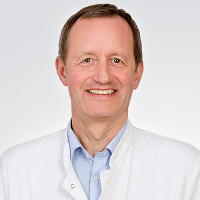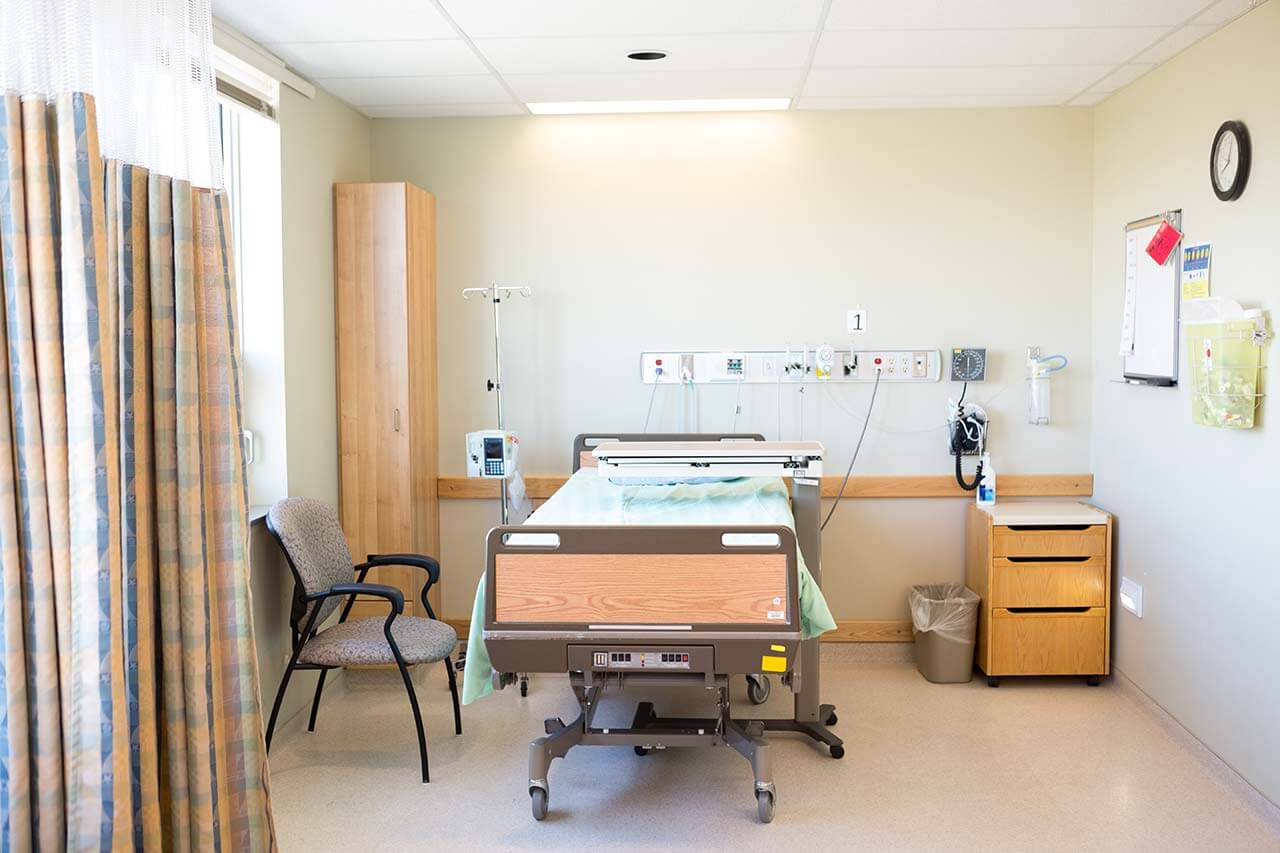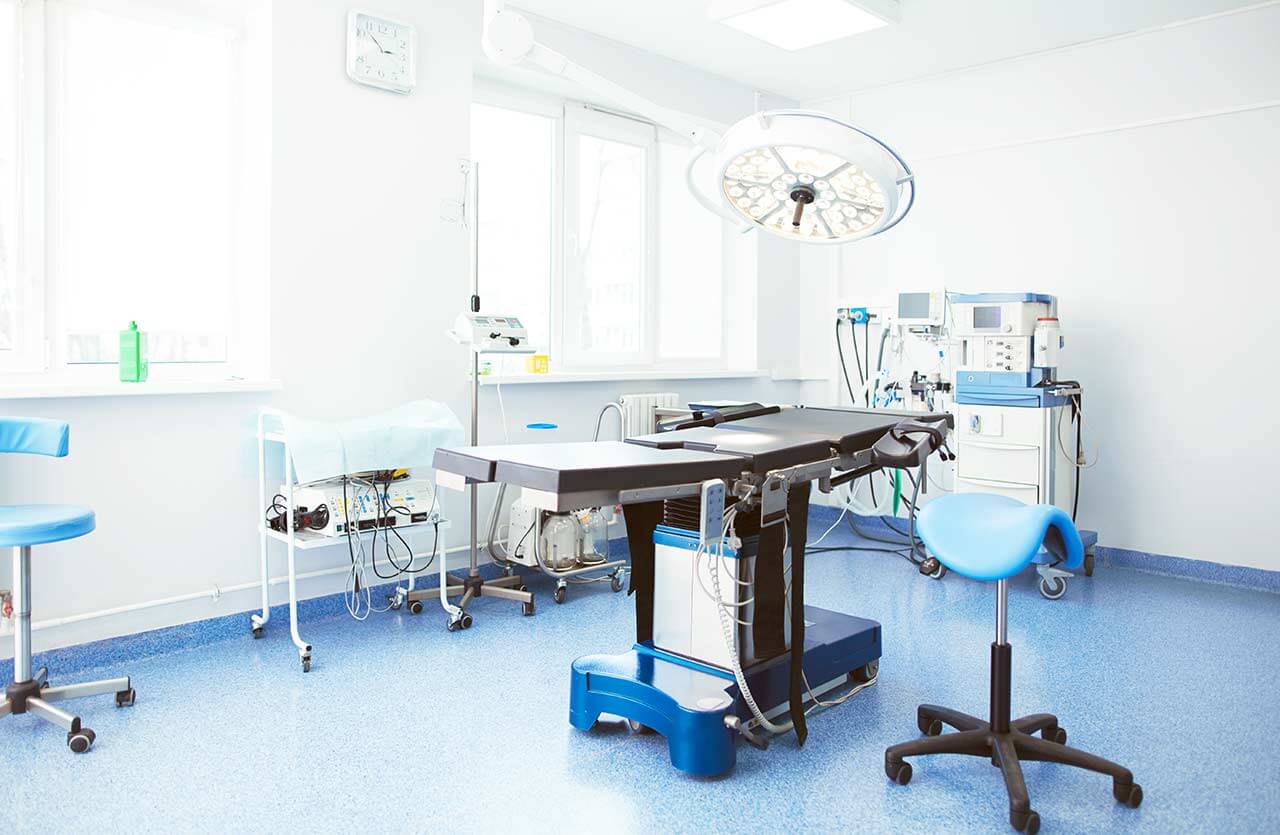
About the Department of General and Abdominal Surgery, Colorectal Surgery, Hernia Surgery, Endocrine Surgery and Bariatric Surgery at Schlosspark Hospital Berlin
The Department of General and Abdominal Surgery, Colorectal Surgery, Hernia Surgery, Endocrine Surgery and Bariatric Surgery at the Schlosspark Hospital Berlin offers patients the full range of modern surgical interventions in the areas of its specialization. The primary areas of work of the department's team of surgeons include operations for colon cancer, diverticular disease, gastroesophageal reflux disease, stomach cancer, benign stomach tumors, and hernias. It is important for the department's doctors not only to provide patients with highly effective treatment but also to make it as sparing as possible, so minimally invasive surgical techniques are widely used here. The department's surgeons have high-tech operating rooms equipped with advanced instruments and monitoring systems. The combination of a state-of-the-art technical base with the high professional skills of the department's surgeons forms a solid foundation for providing high-quality medical care to patients with diseases of any complexity. The department's specialists devote enough time to comprehensive consultation with patients, telling them in detail about the course of the upcoming surgical procedure, expected results, and specificities of the postoperative period. The department is headed by Dr. med. Thomas Rost.
Colon cancer is one of the most common diseases that the department's abdominal surgeons deal with in their clinical practice. As a rule, patients with such a diagnosis are indicated for surgery. When performing the surgical intervention, the department's surgeons completely remove the affected part of the colon with the lymph nodes. The integrity of the colon after the removal of a large intestine tumor can be restored by anastomosis. In some cases, when the rectum is affected, a stoma, which is a surgically created opening for the removal of colon contents, is made on the anterior abdominal wall. The department's surgeons successfully perform operations to resect neoplasms using minimally invasive techniques. In terms of efficiency, such operations are in no way inferior to open ones, but they allow for avoiding traumatic incisions in the anterior abdominal wall and damage to the internal organs. Minimally invasive treatment is also characterized by a less severe pain syndrome and avoids extensive blood loss, which in turn significantly reduces the period of postoperative hospitalization.
In the field of general and abdominal surgery, of particular interest to the department's surgeons is the treatment of gastroesophageal reflux disease (GERD). When a patient has this pathology, they develop dysfunction of the upper esophageal sphincter, due to which the stomach contents enter the esophagus. As GERD progresses, the esophageal mucosa becomes severely damaged, leading to the development of Barrett's esophagus, which is a precancerous condition. Patients with the early stages of gastroesophageal reflux disease undergo a course of drug therapy aimed at relieving symptoms and preventing the progression of pathological changes. However, in the advanced stages of GERD, medicines are ineffective, and the department's surgeons recommend surgical treatment to patients. The main surgical treatment method for gastroesophageal reflux disease is a Nissen fundoplication. The essence of the operation is to form a cuff by wrapping the fundus of the stomach around the esophagus, as a result of which the reflux of the stomach contents back into the esophagus is eliminated and the food bolus from the stomach enters the intestines. The duration of the Nissen fundoplication is about an hour. The operation is performed under general anesthesia.
The department's team of colorectal surgeons specializes in the treatment of anorectal abscesses, anal fistulas, and hemorrhoids. An anorectal abscess is a localized accumulation of pus in the perirectal cellular space that is accompanied by edema and severe pain. The only option for eliminating an abscess is surgery, during which the surgeon opens the cavity of the abscess and drains the accumulated pus. Hemorrhoids are an expansion of the veins of the hemorrhoidal plexus and the formation of nodes, as a result of which the patient suffers from rectal bleeding and painful sensations during defecation. If left without any medical attention, the symptoms will get worse, so surgery becomes inevitable. In patients with stage 3-4 hemorrhoids, the department's surgeons successfully perform the Longo procedure (stapled hemorrhoidopexy). The purpose of the surgical intervention is to remove a circular area of the mucous membrane and submucosal tissues with blood vessels, due to which the hemorrhoidal nodes are pulled up and deprived of blood supply, which leads to their gradual disappearance. The Longo procedure is a low-traumatic intervention, the duration of which does not exceed an hour. The patient can return to their usual life 3-5 days after the procedure.
An integral part of the department's clinical practice is hernia repair surgery. The department's surgeons focus on patients with inguinal hernias and anterior abdominal wall hernias. Hernioplasty is performed in the department using minimally invasive techniques, thanks to which patients recover after surgery in the shortest possible time and do not experience a severe pain syndrome.
The department's surgical options also include bariatric surgery for patients with morbid obesity. Doctors have vast experience in surgery for intragastric balloon placement, gastric bypass, and gastric banding. All bariatric procedures are performed in the department using minimally invasive techniques. The goal of bariatric surgery is to change the structure of the stomach anatomically, as a result of which a large part of it is excluded from the process of digesting food. After the operation, the stomach can only contain a limited amount of food, and the absorption of nutrients in the small intestine deteriorates. A person therefore begins to lose weight without feeling any hunger or discomfort. Following bariatric surgery, patients receive recommendations on nutrition and physical activity, which, in combination with the operation, allow them to achieve the optimal result.
The department's key clinical focuses include:
- General and abdominal surgery
- Surgery for colon cancer
- Surgery for stomach cancer
- Surgery for benign stomach tumors
- Surgery for diverticular disease
- Gallbladder resection surgery for gallstone disease (innovative CoLA technique that does not leave any visible scars)
- Surgery for large and small intestine resection in cases of inflammatory bowel diseases
- Surgery for liver metastasis removal
- Fundoplication for gastroesophageal reflux disease
- Appendectomy (appendix removal surgery)
- Laparoscopic removal of adhesions (adhesiolysis)
- Colorectal surgery
- Surgery for rectal resection in rectal cancer
- Surgery for anorectal abscesses
- Longo procedure and STARR procedure for hemorrhoids
- Hernia surgery
- Hernioplasty for inguinal hernias
- Hernioplasty for anterior abdominal wall hernias
- Endocrine surgery
- Thyroidectomy (thyroid gland removal)
- Bariatric surgery
- Intragastric balloon placement
- Gastric banding
- Gastric bypass
- Other surgical options
Curriculum vitae
Higher Education and Postgraduate Training
- 1995 Medical State Examination, Free University of Berlin.
- 1997 Theoretical basis of the specialty in Emergency Medicine.
- 1999 Thesis defense. Subject: "The role of endoscopic ultrasound scanning in the diagnostics of achalasia cardia and scleroderma".
- 1999 Theoretical basis of the specialty in Radiation Protection.
- 2001 Board certification in Surgery.
- 2007 Advanced Training Certificate for Minimally Invasive Surgery (CAMIC).
- 2008 Board certification in Abdominal Surgery.
- 2016 Additional qualification in Special Abdominal Surgery.
Professional Career
- 05.1995 - 11.1996 Internship, Department of General, Abdominal and Vascular Surgery, HELIOS Clinic Emil von Behring Berlin Zehlendorf.
- 12.1996 - 08.2000 Assistant Physician, Department of General, Abdominal and Vascular Surgery, HELIOS Clinic Emil von Behring Berlin Zehlendorf.
- 09.2000 - 08.2001 Assistant Physician, Department of Trauma Surgery and Reconstructive Surgery, Charite University Hospital Berlin.
- 09.2001 - 12.2001 Assistant Physician, Department of Trauma Surgery, Oskar Ziethen Clinic Berlin.
- 01.2002 - 01.2004 Senior Physician, Department of General, Abdominal and Vascular Surgery, HELIOS Clinic Emil von Behring Berlin Zehlendorf.
- 02.2004 - 01.2007 Managing Senior Physician, Department of General, Abdominal and Vascular Surgery, HELIOS Clinic Emil von Behring Berlin Zehlendorf.
- 02.2007 - 08.2010 Head of the Center for Minimally Invasive Surgery in the Department of General, Abdominal and Vascular Surgery, HELIOS Clinic Emil von Behring Berlin Zehlendorf.
- 09.2010 - 12.2010 Acting Head, Department of General, Abdominal and Minimally Invasive Surgery, HELIOS Clinic Emil von Behring Berlin Zehlendorf.
- Since 01.01.2011 Head Physician, Department of General and Abdominal Surgery, Colorectal Surgery, Hernia Surgery, Endocrine Surgery and Bariatric Surgery, Schlosspark Hospital Berlin.
- 01.2018 Establishment of the Berlin/Brandenburg Quality Association for Colorectal Surgery.
Memberships in Professional Societies
- Working Group on Minimally Invasive Surgery (CAMIC).
- German Society of Surgery (DGCH).
- Berlin Society of Surgery (BCG).
- German Society of Abdominal Surgery (DGVC).
- International Federation for the Surgery of Obesity and Metabolic Disorders (IFSO).
- European Hernia Society (EHS).
Photo of the doctor: (c) Schlosspark-Klinik GmbH




